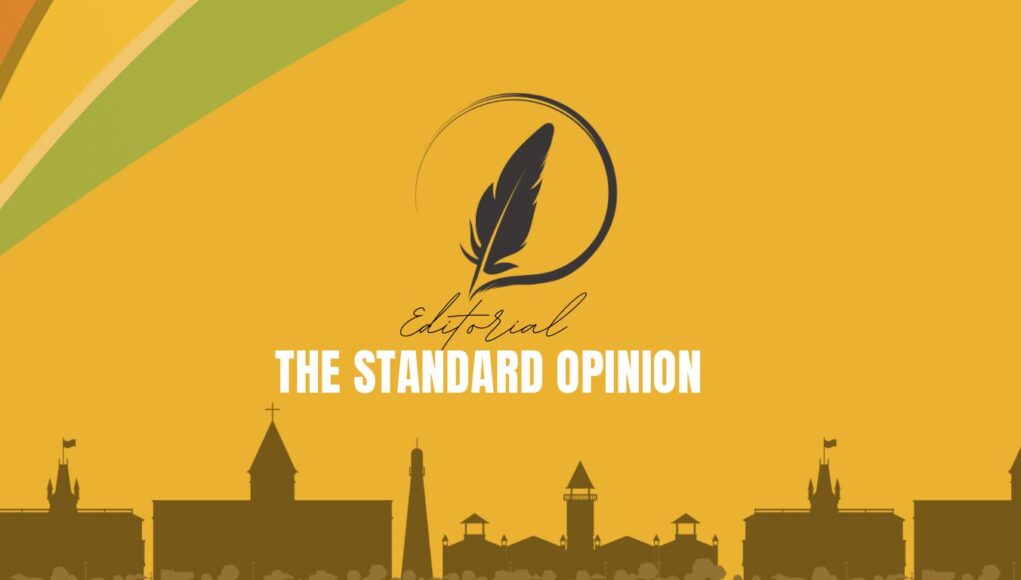The Georgetown Mayor and City Council (M&CC) is split in the wake of passing a financial regulation that has cast it into a quagmire—one with mammoth legal and financial ramifications. As a result, the government has been dragged into a fracas with the council, where even the slightest underestimation of this conundrum could spell doom for the Irfaan Ali-led regime’s plans to widen its reach within the capital.
The regulation is geared toward waiving interest on taxes owed by residents and appears to be an appropriately warranted measure, especially in light of the economic hardships citizens face in a country of plenty, and where the cost of living continues to flatten the already small man. Sadly, the council does not have the authority to grant such a measure— at least, not legally.
The Minister of Local Government and Regional Development, Sonia Parag, issued a statement mere days after the M&CC approved the directive, pointing out the stone in the shoe. Her message was as stern as it was clear: only she has the power to make such a regulation, not the Mayor, Alfred Mentore.
In case you’re on the fence about the legality of the regulation, here is what Section 146 (1) of the Municipal and District Councils Act says: “The Minister may make financial regulations for controlling and managing financial business of councils.” Additionally, Section 146(2) goes on to outline the scope of such regulations, including matters related to accounting, borrowing, tendering and the receipt of revenue.
You’re probably thinking that such a clarification would suffice in defusing any potential standoff, but think again. If you’re waiting for this to reach a natural conclusion with the party in err rolling over, then you probably stumped your toe and stumbled into an alternate universe where things make sense and Vice President, Dr. Bharrat Jagdeo owns a comb.
But here’s the context you need for it to make sense…
The M&CC consists of predominantly opposition-nominated councilors, and Georgetown is not just any support base; it is the jewel in the opposition’s crown. You’re now probably thinking, “Well, it would make sense for the opposition councilors to look out for their constituents.” And that might be what’s happening here, but here’s another point, and perhaps the most important one: The M&CC is broke. Yes, it is fragmented along political lines, but mostly, it has no money. To voluntarily forgo even a portion of its revenue would border on fiscal suicide.
While the government and its councilors at the M&CC continue to point out the illegality of implementing such a regulation, the Mayor and the other opposition-nominated councilors have doubled down.
The issue has escalated to a point where Mayor Mentore has said that he will defend the decision in court, defiant amid Minister Parag’s warning about the legal brimstone she and the Attorney General, Anil Nandlall, are prepared to rain down on City Hall. She has even threatened to call in the police.
Immediately after that warning, letters and statements attributed to opposition-aligned persons, including the Mayor and at least one councilor, Lelon Saul, have appeared in both print and social media, expressing the importance of the regulation, labelling it as necessary in addressing poverty in the city.
Interesting to note is Councilor Saul’s response to Minister Parag’s statement in a Letter to the Editor published in the Kaieteur News on March 29, 2025, titled “Defending Georgetown’s Compassionate Approach: Why the Mayor and City Council Made the Right Decision”. He said that “the situation is much more nuanced” than legality, noting that the M&CC’s decision “was not only ethically right but also a crucial measure to shield at-risk citizens from economic distress”.
Saul, a retired army Colonel and former CEO of the Central Housing and Planning Authority (CH&PA), in that missive, in clear terms, admitted that the minister’s legal argument “has validity” but noted that it “overlooks an essential issue”, which is the obligation that local government has in addressing the pressing needs of the citizens.
It does appear on the surface that the opposition-nominated councillors are convinced that this is the right thing to do, and are willing to sidestep the law as long as it is in service to the people. Interestingly, their stance does indeed introduce a burning question; an age-old one, in fact, of whether duty and morality triumph over legality. Perhaps the legal minds can offer some perspectives.
But even the non-legal minds are bound to ask of cause and effect of such a move. For instance, if the council is to grant what it is not empowered to give, then it could expose itself to civil legal challenges, especially over the methodology to determine who genuinely qualifies for such a relief.
One can argue that the methodology is flawed thus rendering the waiving of interest discriminatory.
The council will have to be clear on how it determines who should and must get the relief, or will it walk around in communities and in an Oprah Winfrey style, grant everyone it perceives to be living in poverty an interest-free bless-up?
But aside from the methodology, the move does indeed pose a financial dilemma for the M&CC, which has repeatedly complained about the Central Government’s limited subventions and citizens’ failure to pay rates and taxes—an issue Saul has also raised.
Ironically, while the Council has been calling for revaluation of properties that would result in higher, modernized rates, it now seeks to eliminate interest charges. It does seem odd that the M&CC would simultaneously advocate for more income while arguing for less.
Interestingly, Mayor Mentore’s justification for the measure has gone past the call to ease the financial burdens of the residents and has taken on more of a political overlay. He claims that there is something sinister afoot. In a post on the PNCR’s Facebook page on April 1, 2025, he was quoted as saying: “The Government’s intention is to cause these poor people to become bankrupt so they can take the opportunity to buy out their properties. We will push against that to ensure this never happens.”
So, what then is the true objective of the regulation? Is it to help those struggling financially, or is it to protect them against a supposed predatory government frothing at the mouth for real estate? Perhaps it’s both? While the Mayor and his colleague continue to share differing justifications for the regulation, there is a common thread: they are both willing to shirk the law and flirt with all manner of legal repercussions.
Meanwhile, the government councilors, through their responses in the press, have recognized the need for such a relief but have stressed the importance of adhering to the rule of law. In other words, they have acknowledged the plight of the people but will not allow for the usurpation of the law and, yes, the powers of the Minister.
Therefore, if both sides are in agreement that residents of Georgetown need relief, and the issue is really about who possesses the power to make the regulation, then wouldn’t encouraging the Minister to do so be the better logical course of action since that would skillfully sidestep the legal predicament altogether? Both sides of the council would see people getting the assistance they need, and our nation would be spared the pain of watching this play out.
But of course, it is never that simple – at least not for the government. The M&CC has skillfully, for the moment, placed the government in a chokehold, with any wiggling out risks the regime as looking like the villain. It is effectively caught between a rock and a hard place.
The M&CC knows that it would be in the government’s best interest to act, given that the play risks derailing the inroads the People’s Progressive Party/Civic’s claims it has made in widening its support base in Georgetown. The government cannot claim to look out for the poor while barring a measure that could effectively bring relief to them.
Also, it would be easier for the opposition to reframe the issue from one that is fundamentally about the legality of crafting the regulation to a case of the government being hell-bent on denying the people of Georgetown much-needed relief. This comes more in focus as the nation gears up to head to the polls this year.
As for the M&CC, even if it loses in a court of law, its retort would likely be, “We’re fighting for the people”. Perhaps it craves martyrdom, much like what was proffered by eight opposition parliamentarians in that infamous mace-grabbing incident that took place on the night of December 29, 2021, during the passing of the Natural Resources Fund (NRF). Those MPs disrupted the sitting and claimed that they did it for the people and future generations. The result of their actions was felt. They were all suspended.
The Government also knows that if the M&CC succeeds, it will set a precedent that will see opposition-controlled local organs becoming motivated to achieve similar feats. How the government deals with this ongoing standoff could determine its influence in those opposition-controlled areas.
This is a matter that requires careful attention and strategy. In the meantime, what can the struggling residents of Georgetown do?












